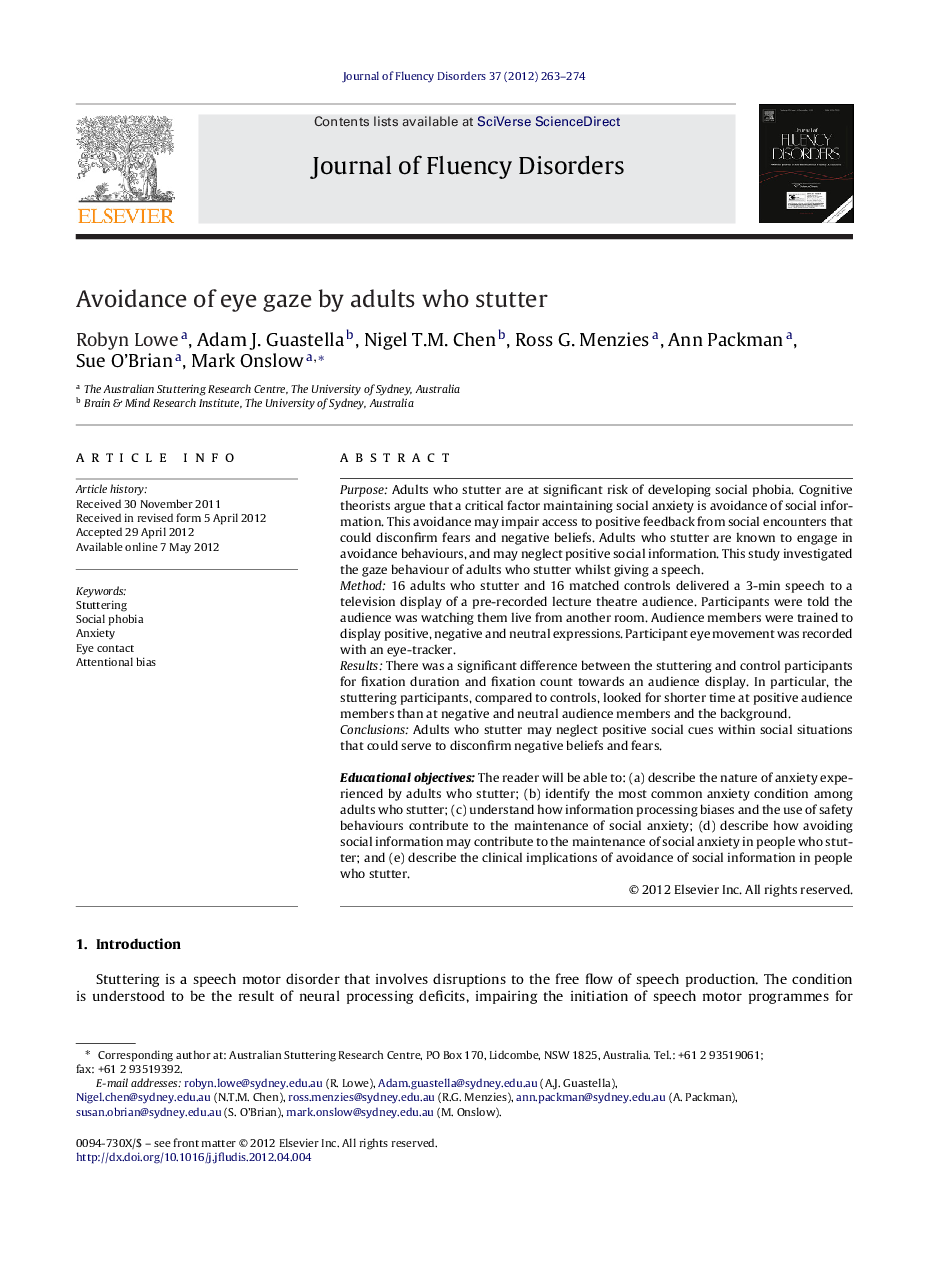| کد مقاله | کد نشریه | سال انتشار | مقاله انگلیسی | نسخه تمام متن |
|---|---|---|---|---|
| 911420 | 917922 | 2012 | 12 صفحه PDF | دانلود رایگان |

PurposeAdults who stutter are at significant risk of developing social phobia. Cognitive theorists argue that a critical factor maintaining social anxiety is avoidance of social information. This avoidance may impair access to positive feedback from social encounters that could disconfirm fears and negative beliefs. Adults who stutter are known to engage in avoidance behaviours, and may neglect positive social information. This study investigated the gaze behaviour of adults who stutter whilst giving a speech.Method16 adults who stutter and 16 matched controls delivered a 3-min speech to a television display of a pre-recorded lecture theatre audience. Participants were told the audience was watching them live from another room. Audience members were trained to display positive, negative and neutral expressions. Participant eye movement was recorded with an eye-tracker.ResultsThere was a significant difference between the stuttering and control participants for fixation duration and fixation count towards an audience display. In particular, the stuttering participants, compared to controls, looked for shorter time at positive audience members than at negative and neutral audience members and the background.ConclusionsAdults who stutter may neglect positive social cues within social situations that could serve to disconfirm negative beliefs and fears.Educational objectives: The reader will be able to: (a) describe the nature of anxiety experienced by adults who stutter; (b) identify the most common anxiety condition among adults who stutter; (c) understand how information processing biases and the use of safety behaviours contribute to the maintenance of social anxiety; (d) describe how avoiding social information may contribute to the maintenance of social anxiety in people who stutter; and (e) describe the clinical implications of avoidance of social information in people who stutter.
► Stuttering participants looked less at an audience whilst giving a speech.
► Stuttering participants looked for less time at positive audience members.
► Avoidance of positive social cues may maintain social anxiety in people who stutter.
► Results may begin to explain the impaired maintenance of speech treatment outcomes.
Journal: Journal of Fluency Disorders - Volume 37, Issue 4, December 2012, Pages 263–274